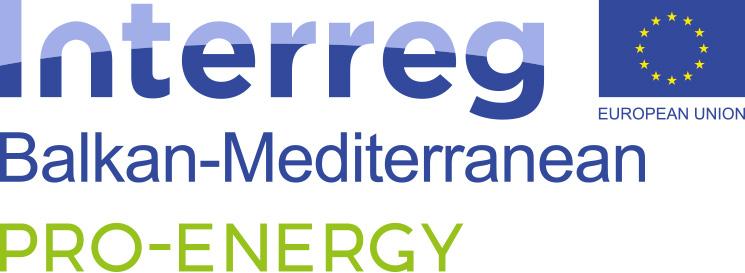
TREK to advice, model and provide Technical Assistance on a Pan-European Project (acronym: PROENERGY) into Energy Efficiency in Public Buildings. The project objective is to promote Energy Efficiency in public buildings in the Balkan Mediterranean territory and to create a practical framework of modelling and implementing energy investment interventions, through specific ICT monitoring and control systems, as well as energy performance contracting. The specific objective is to reduce by >20% energy spending in public buildings of the participating entities in one year after the implementation of pilot actions. Project participants are Greek, Cypriot, Albanian and Bulgarian Authorities. Duration of the project is 24 months and the budget is 1.250.000 EUR.
Numerous initiatives focus on Energy efficiency in Public Buildings, however, the innovativeness of PRO-ENERGY lies on the fact that most energy efficiency measures involve technological interventions, but will equally have to rely on people adjusting their energy consumption behaviour. To do so, consumers should be provided with meaningful, clearly communicated and continual feedback. PRO-ENERGY focuses on non-domestic consumers (employees/visitors etc. of public buildings), because in this segment initiatives are normally delivered at the organisational level and there is no direct link to personal wealth of the individual users. Motivation for those users to engage in energy efficiency behaviours is therefore very different from domestic users and must rely on corporate and social responsibility objectives and reinforcing societal norms. Behaviour change measures at work may inspire consumers to act differently at home increasing thus multiplier effects.
TREK to work and cover all aspects of the inititiative, from PM & co-ordination – communication, to drafting Financial modelling, capacity building to stakeholders and contributing to Pilot action in test cases.
WP1: Project Management & Coordination
WP2: Project Communication & Dissemination
WP3: Joint Regional Analysis, Strategy and Framework
WP4: Capacity Building for Energy Managers
WP5: Pilot Actions
WP5 aims to implement pilot actions that shall be part of the Joint Strategy and Action Plan (WP3). Three types of pilot actions are foreseen:
One (1) public building per area involved will be equipped with smart sensor systems. An integrated cloud-based joint platform will measure and analyse the energy consumed at any given period of the day from different sources. Then all data and measurements will be integrated and analysed, using specially designed ICT tools, algorithms, data analytics and statistical methods, thus producing the energy consumption profile of each building. On the basis of those ratings each partner will engage every single public building into energy savings actions, through alerts, incentives and other forms of information, using automated push mechanisms derived by the ICT system.
Retrofits and other investments will be also planned using the cost-benefit analysis modeller so as to measure the net present value of energy efficiency interventions. These investments will be implemented outside the PRO-ENERGY project (mostly with the use of energy performance contracting – see below), but their results and impact (energy savings) shall be monitored and measured by the ICT platform.
Last but not least, the project will commonly promote energy performance contracting (EPC), which is a form of ‘creative financing’ that allows funding energy upgrades from cost reductions. In that sense, EPC arrangements shall be prepared between project partners and energy service companies (ESCOs) who will implement interventions (retrofits etc.) in the selected pilot public buildings to deliver energy efficiency and will use the stream of income from the cost savings to repay the costs of investments.
WP6: Capitalisation and Sustainability